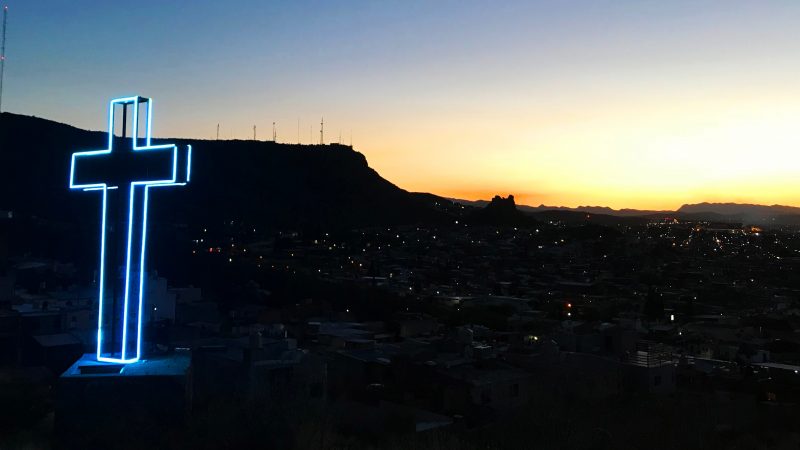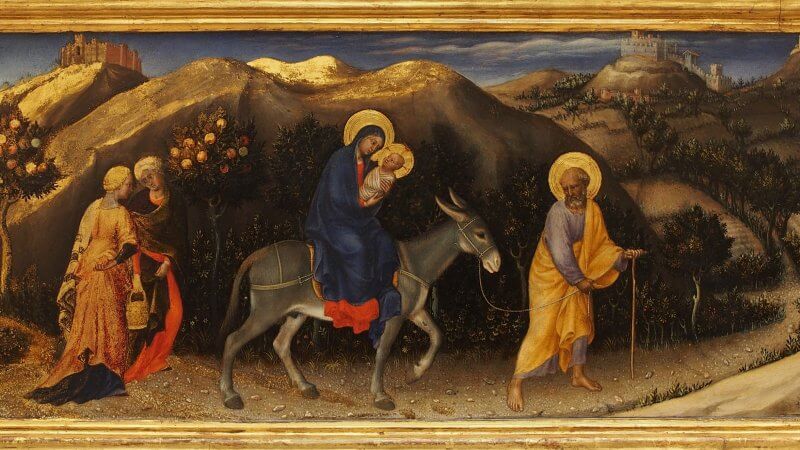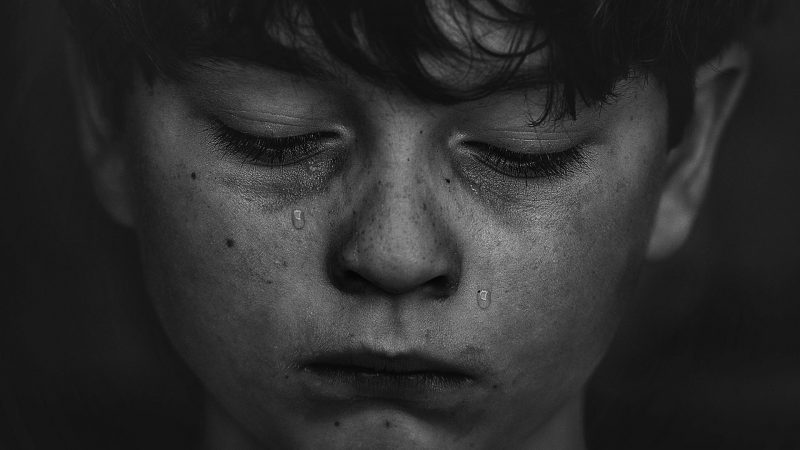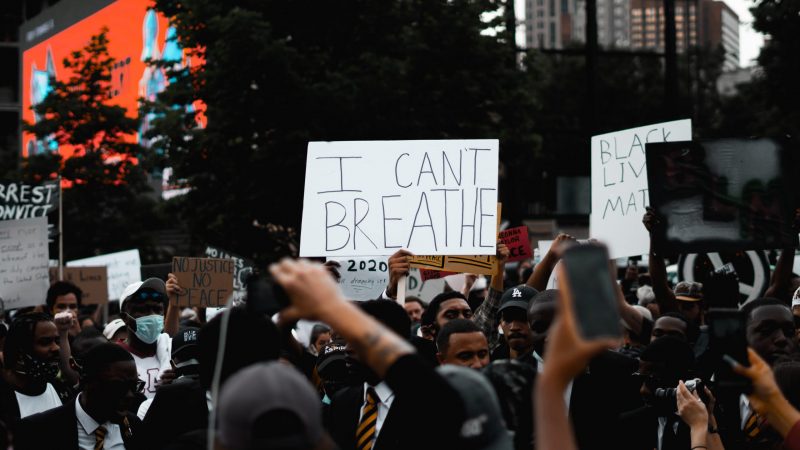Youth Resource
How could a good God allow so much evil in the world?
The problem of evil in the world does pose a challenge to belief in an all-good, all powerful God. Clearly, humans are a large part of the problem, and in the midst of great evil and injustice, the biblical picture is of a God who is with us, and who provides hope in the death and resurrection of Jesus.
Videos
-
Behind the Life of Jesus: How could God allow suffering?
John Dickson and Greg Clarke discuss why God doesn’t just end the suffering in the world.
Transcript
JOHN DICKSON: Greg we’re in the Golan Heights talking about Jesus’ vision of a coming kingdom – a kingdom of peace, the end of suffering, and so on. It begs the question – why doesn’t God end the suffering?
GREG CLARKE: Yeah, and it’s the question on every thinking person’s lips, isn’t it? How could a God that is good and powerful allow a world like this one to unfold? For some people this question is so hot, they give up on God altogether; they conclude that kind of God just could not exist. I think that’s unnecessarily despairing. There are two kinds of issues in operation here: there are the logical, philosophical issues; and there are the emotional, experiential issues. On the logical, philosophical front, there isn’t really a contradiction between the statements that God is good and God is powerful and that evil and suffering exist. I mean God can have all sorts of appropriate reasons for allowing a world like this. For example, He may want human beings to deliberately seek the good, not to be just like puppets on a string. So, you can explore the philosophical questions.
JOHN DICKSON: That’s only part of it though. Surely the emotional side of this question is far more powerful.
GREG CLARKE: Yeah and that really is the heart of it, and the struggle for people. I mean, people cry out to God saying ‘God, how could you allow this place to be the way it is? How could you put up with it?’ But Christian teaching’s always been that God actually doesn’t put up with the world. He’s always wanted a loving, peaceable, pain-free world, and we’re the ones who’ve moved, we’re the ones who’ve brought evil and suffering into the world. In fact, the problem of the world is so much associated with us. And God still wants a loving, peaceable, pain-free world, in fact, that’s the very idea behind the kingdom of God and the pathway in which Jesus is taking us. Another part of the Christian teaching though, that I find incredibly helpful on this, is the idea that God has actually entered into the pain of the world, He’s entered into our suffering in the person of Jesus of Nazareth. That God has actually taken on human form, that he knows what it’s like to suffer, he’s experienced what we’ve experienced and even more. And that Jesus’ coming into the world is showing God’s sympathy for our situation, and that we’re heading towards a world where these things will be resolved – not only human suffering, but the suffering of the whole creation.
JOHN DICKSON: So, we might not have all the intellectual answers, but we have a clear picture of the God we bring our questions to?
GREG CLARKE: We have a God who sympathises with the human situation and wants it to be resolved.
close -
Faith in a time of suffering
Ruth Padilla de Borst on how her Christian faith helped her through a time of great personal suffering.
Transcript
SIMON SMART: You spoke about the realities of life, and you’ve experienced some pretty harsh realities yourself. I wonder if you could comment on the way in which your faith has spoken into a time of great suffering?
RUTH PADILLA DE BORST: Several years ago, when my husband and I and two of my little children were filming a bushfire in Ecuador where we lived, some men came up and they – it was a carjacking – but in the process, they actually shot my husband to death in front of us. And many people as they walked with me through my grieving process said, “How can you still believe that God is good, and God is there?” And actually, for me the experience was such that I didn’t only experience God giving me strength to endure, being compassionate towards me, but I experienced God suffering in this unjust and unnecessary death. I got a whole new understanding of what it meant that Jesus died and took on human suffering and took on the consequences of our violent society, of our greed, of things that distort our perspective so much that for these men a car was more valuable than a life. And since then, I’ve become so much more sensitive to God’s presence in the midst of the suffering of others. And often I think people that suffer can actually be even more aware of God’s presence sometimes than when we have it all put together, or we pretend we have it all put together.
close -
Faith and injustice
How IJM’s founder Gary Haugen responded as a Christian when confronted with genocide in Rwanda.
Transcript
SIMON SMART: When you’re faced with this sort of grinding poverty, inequality, awful violence – is that ever a challenge to your own faith? Does that present some issues for you as a Christian?
BETHANY HOANG: Absolutely. And, you know, our founder at IJM – his name’s Gary Haugen – and before he started IJM, he was actually the chief investigator for the Rwanda genocide. Basically, what he had to do was go to the mass graves of over 800,000 people who were one by one macheted to death, and he had to go to these bodies and pick through them and find evidence of what their names were, who they were, count them. If ever there is an occasion to be completely in despair and to wonder, Where was God? – that is the place to ask that question.
And as Gary started to find himself going to that question of “Where was God?”, the thing that came to him instead was, “Where were God’s people? Where are the people who could show up and who could stop this violence from happening in the first place?” And that’s actually why he founded IJM, to give an avenue for people who believe in the God of justice to live that out and to bring justice to those who most need it in our world today.
close
Articles
-

Easter, My Lai, and the Mysterious Victory of the Cross
Simon Smart on the mysterious victory of the cross over evil.
-

Harshness of first Christmas story a good fit for our troubled times
Justine Toh challenges the idea that Jesus’ birth is a “nice” story, divorced from harsh reality.
-

Heart of Darkness
Simon Smart on reading stories from the war in Ukraine, and both the darkness and the goodness of human nature.
-

Sorrow in statistics
After taking part in a survey on child abuse, Emma Wilkins reflects on the importance of scrutinising our failings, and where her hope lies.
-

Just tears
Richard Shumack on the film ‘Just Mercy’, the human longing for justice, and the importance of “looking at the world through tears.”
-

“I can’t breathe”
Anna Grummitt on how George Floyd’s last words sound like a mantra for 2020 – and what it means for the God with wounds to know human pain.
Engage
- As a class, brainstorm examples of major evils or injustices that have occurred in the past century (e.g., the Holocaust, 9/11, mass shootings, human trafficking).
- In pairs, share examples of evils and injustices that you have heard about in the news or experienced yourself in the past week.
- Read the following quotes, and choose one that particularly stands out to you. Share with another student why you chose that quote, and to what extent you agree with it.



Understand & Evaluate
- Watch Behind the Life of Jesus: How could God allow suffering? and read Easter, My Lai, and the mysterious victory of the cross and Harshness of first Christmas story a good fit for our troubled times. Complete the following table based on the perspectives offered in the video and the articles.
- Watch Faith in a time of suffering and Faith and injustice. What strikes you about the way Ruth Padilla deBorst and Gary Haugen responded when personally confronted with immense evil and injustice?
- Read one of the short columns Heart of darkness; Sorrow in statistics; Just tears; or “I can’t breathe”.
- Do the Word-Phrase-Sentence Thinking Routine for the column you chose.
- Form small groups with others who chose a different column than you, and share with the group your answer to this question: What does the column you chose contribute to the conversation about how a good God could allow evil and injustice in the world?
Bible Focus
- In small groups, read either Psalm 73 or Isaiah 59:1-20, and answer the following questions.
- List some examples of types of evil actions and injustices mentioned in this passage.
- Who is responsible for evil and injustice in this passage?
- What are some of the consequences of evil and sin for the people?
- What is God’s response to evil and injustice?
- How might this passage point forward to Jesus, and the idea that “while evil is all too real, both around us and to some extent within us, there exists in the Christ story a defiant hope and a promise of ultimate justice, restoration and the renewal of all things” (Simon Smart)?
Apply
- Write a short column (250-300 words) in a similar style to Simon Smart, Emma Wilkins, Richard Shumack, and Anna Grummitt’s columns, reflecting on an aspect of injustice in the world and whether/where hope might be found.
- Do the 3, 2, 1 Reflection Thinking Routine based on what you have explored in this lesson.
Extend
- Research another faith-based organisation like International Justice Mission that is striving to respond to evil and injustice in the world. Create a poster that outlines what the organisation is trying to achieve, how they are going about it, and what they are motivated by.


